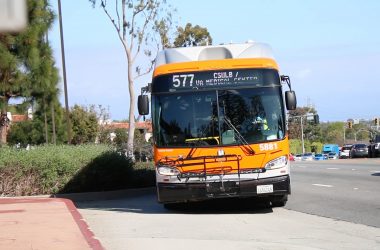Students in the California State University system may not know everything their fees help pay for, but they’d probably be surprised to learn that one CSU official used University money to pay for trips to China, Amsterdam, and Australia.
In a report released Dec. 3, California State Auditor Elaine Howle revealed that a former employee of the CSU chancellor’s office received $152,441 in improper reimbursements between July 2005 and July 2008. The report also said the university failed to adequately review the expenses claimed. The employee, who was not named in the report, was described as a high-ranking official in the Information Technology Services department of the chancellor’s office. The official has been identified as David Ernst, who is now serves as the chief information officer in the University of California office of the president.
Nearly $40,000 of the reimbursements were for travel that “appeared to offer the university few tangible benefits,” according to the report. Trips to high-profile destinations such as Shanghai, Melbourne, London, and Amsterdam were covered by University funds. Other expenses claimed by the former official include meals, commute expenses, personal expenses and a living allowance.
Ernst defended himself in a written statement.
“I am disappointed by the tone and tenor of this audit: It appears to elevate concerns about travel policy issues into a personal attack on my character. As with many such reports, the issues in this audit are much more complex than they may appear on first reading,” Ersnt said.
In the report, the state auditor also criticized the university for lacking policies and safeguards to discourage inappropriate reimbursements, as well as failing to enforce caps on spending that were in place. During the three-year period examined in the report, Ernst claimed $26,455 in eating expenses. In one case, the official was reimbursed $2,332 for a business-related dinner attended by 14 CSU staff members, at a cost of almost $167 per person. University policy at the time prohibited payments of more than $25 per person for meal expenses, but the official was still reimbursed.
Erik Fallis, media relations specialist for the CSU, said the CSU agrees with the auditor’s recommendation to reexamine reimbursement policies for high-level employees.
“Two years ago, the CSU put in place more stringent controls for regulating meal and travel reimbursements. It is clear that some of the amounts claimed were excessive and unacceptable, and would not be approved under policies now in place,” Fallis said in an e-mail.
Ernst’s actions have been criticized by labor groups and legislators. Lillian Taiz, president of the California Faculty Association, called the report “the most recent in a long line of incidents from CSU executives and managers that betray the public confidence.”
A labor union representing workers of the UC is asking for Ernst’s resignation. Ernst began working at the UC in July 2008 after 13 years at the CSU, according to a letter by Katherine Lapp, executive vice president of business operations for the UC system. His initial salary was listed at $238,000 in a compensation report prepared by the UC.
When interviewed by Howle, Ernst defended many of his claimed expenses. He said the expensive meals were used to thank people who served on university committees and organizations.
Travel-related expenses were defended as necessary. The official traveled to Shanghai and Amsterdam in order to attend meetings held by private companies that were vendors for the University. Ernst said in his statement that the organizations offered to pay for the travel, but that the CSU could not accept the payments because of state conflict of interest rules.
Other Cal State officials who were interviewed during the investigation, said the meetings were necessary in order to maintain relationships with the vendors and other attendees. The state auditor’s office, however, said there was “no evidence indicating that the official’s attendance at these events provided a significant business advantage or strategic value for the university.”
State Senator Leland Yee, D-San Francisco, called upon Ernst to repay the money.
“Taxpayers and CSU students deserve a refund,” said Yee in a press release. Yee, who authored a bill vetoed by Gov. Schwarzenegger that would have limited pay raises of executives in the CSU and UC systems, said the actions described in the audit were “likely only the tip of the iceberg”.
Fallis said the CSU would try to recover money paid to Ernst in overpayments and duplicate payments, a total of $1,834, according to the audit. In his statement, Ernst said he had already sent a check for that amount to the CSU chancellor’s office.
Last updated Dec. 7 at 11:23 p.m.



